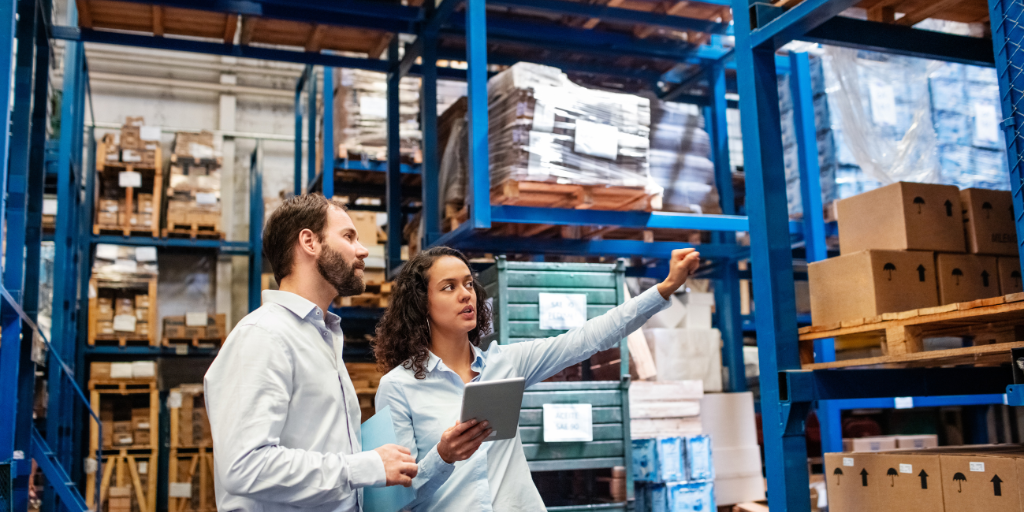As global supply chains continue to evolve in response to the post-pandemic landscape, market leaders are stepping up their game to ensure resilience and agility in an increasingly volatile world. The lessons learned during the pandemic have emphasized the importance of not just maintaining inventory but also embracing forward-thinking strategies that safeguard against future disruptions. Here's how leading companies are future-proofing their supply chains and unlocking significant value in the process.
Embracing Digital Tools for Proactive Risk Management
In today’s unpredictable environment, holding surplus stock as a buffer against supply chain disruptions is no longer a sustainable strategy. Instead, leading companies are turning to digital tools like horizon scanning and early warning systems to stay ahead of potential risks. These technologies enable organizations to monitor global trends and identify early signals of raw material shortages or quality issues.
Take the current global cocoa shortage, for example. With cocoa prices reaching heights not seen since the 1970s, manufacturers have been forced to adapt by reformulating products or rethinking their value propositions. Leveraging Veeva's digital solutions, companies can navigate such challenges by accessing real-time data that informs proactive decision-making, ensuring they remain agile and competitive even in the face of supply chain disruptions.
Pursuing Supply Chain Resilience Will Call for Greater Cultural Competence
The shift towards nearshoring and reshoring is gaining momentum as companies seek to mitigate procurement risks linked to economic, climatic, and geopolitical factors. The pandemic underscored a critical lesson: relying on a single or small group of suppliers can leave companies vulnerable. To combat this, many businesses are diversifying their supply chains, spreading risk across multiple regions.
Eastern Europe has emerged as a successful case study in nearshoring, where companies have diversified their procurement to avoid being overly dependent on any one region. However, this approach also introduces new challenges, particularly in managing and mentoring newer suppliers in developing countries. These suppliers often have smaller carbon footprints, which aligns with sustainability goals, but cultural competence and upskilling are essential to ensure seamless integration into global supply chains.
Reevaluating Market Focus in the Pursuit of Sustainability
Market leaders are not just looking at supply chain resilience—they're also reevaluating the markets in which they operate, driven by sustainability and logistical efficiency. The decision by Fonterra to exit its consumer products business is a prime example. By shifting focus to B2B dairy nutrition, Fonterra is streamlining its operations to reduce amongst other things the complexity and environmental impact of transporting finished goods.
Decarbonization is increasingly recognized as a key component of a resilient supply chain, offering both financial and non-financial rewards. Companies that invest in sustainability initiatives not only enhance their reputation but also benefit from lower operating costs, greater regulatory compliance, and improved talent attraction. In fact, some companies have reported annual financial benefits of over $100 million from meeting emissions reduction targets.
Harnessing Digital Technology for Supply Chain Sustainability
Technology plays a crucial role in driving sustainability across the supply chain. Companies with automated digital solutions are 2.5 times more likely to measure their emissions comprehensively, enabling them to identify innovative ways to reduce their carbon footprint. The integration of AI and predictive modeling tools further enhances decision-making, helping organizations anticipate and respond to supply chain challenges more effectively.
As the push for sustainability intensifies, digital solutions like those offered by Veeva Consumer Products become indispensable. By providing a unified platform for managing quality, safety, and compliance, Veeva empowers companies to streamline operations, improve transparency, and ensure their supply chains are not only resilient but also sustainable.
Time to Take Action
The future of supply chain management lies in digital transformation and sustainability. Now is the time for organizations to evaluate the potential of digital technologies across the resilience spectrum of their supply chains. Explore how Veeva’s integrated solutions can help your company navigate these challenges and secure a competitive edge in a rapidly changing world. Explore the Veeva Consumer Products website to learn more.
Learn more about Our Unified Quality Management Suite - QualityOne Watch the Video >
SHARE






